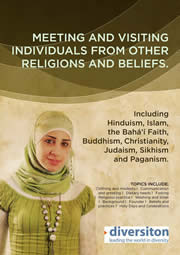Traditions/Beliefs
the Qur’an(literally translated it means the “recital”,the islamic scriptures is one of the most important books in human history.
It was written in Arabic and it is thought to be authoritative only in that language. All Muslims memorize and recite the Qur’an in Arabic. It is made up of 114 sutras (chapters) and 6,000 verses. The first chapter begins with the words “Praise be to Allah” and this is universally used in the daily prayers of Muslims around the world. According to the Qur’an, God (Allah, the Arabic word for “The God and Creator”) is transcendent, all-powerful, all-knowing and the creator, sustainer, ordainer and judge of the universe. The Qur’an also emphasizes that Allah is also merciful and compassionate.
A few of the major Qur’anic teachings are:
- The Qur’an teaches that Muslims are obliged to be God’s servants and to spread God’s message – this obligation is to the individual as well as to the community at large.
- The Holy Scripture also stresses that all individuals are equal before Allah and places a large obligation for the rich to help the poor and disposed in society.
- Qur’anic revelation also raised the status of women in marriage, divorce and inheritance. “Men and women are equal in the eyes of God; man and woman were created to be equal parts of a pair” (51:49)
- The Scripture stresses pluralism and tolerance – that God has created many nations and peoples. It clearly and strongly states that “there is to be no compulsion in religion” (2:256)
The Five obligations (often referred to as pillars) of Islam which are Outlined in the Qur’an are:
- Shahadah – Confession of one’s faith in God and in his Prophet Muhammad. “There is no God but God; Muhammad is the Prophet of God”.
- Salat – Ritual Worship. Prayer five times daily (before sunrise, after midday, at mid-afternoon, shortly after sunset and in the fullness of night)
- Zakat – Almsgiving. A Zakat (purification tax) on property is paid by all Muslims for the benefit of the poor).
- Sawm – Fasting. Fasting is observed during the holy month of Ramadan
- Hajj – Pilgrimage. Every Muslim who is of sound body, sane, and able to afford the journey is expected to make a Hajj (pilgrimage) to the holy city of Mecca.
These Pillars are central to Muslim observance and practice.




